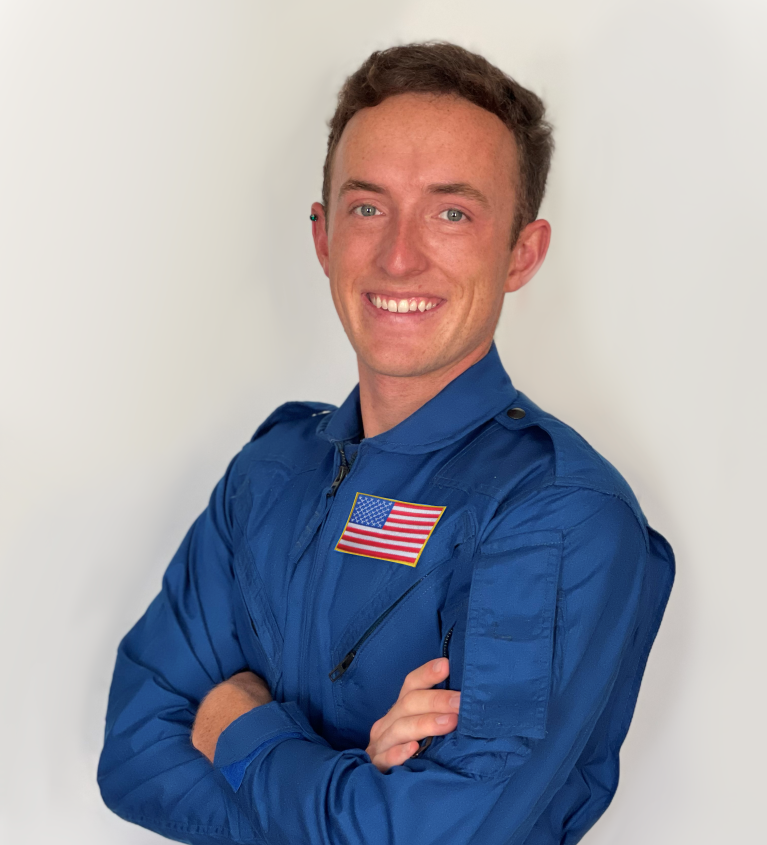‘Out Astronaut’ Brian Murphy Long Embraced Trailblazer Role
By Ruth Nichols
Brian Murphy is a senior at Florida Tech majoring in planetary sciences with honors.
He was raised in rural Maryland, where he faced obstacles throughout his upbringing.
“I had to trailblaze through my family both as a scientist and a gay, nonbinary person myself, in a conservative rural community,” says Murphy. “As someone who loves to do science, being a member of the LGBTQ community really defined who I am.”
His fearlessness has not gone unrecognized. It, and Murphy’s passion for science, community impact, research and extracurricular experiences, brought him a unique and powerful national recognition: Being named the 2021 Out Astronaut.
The Out Astronaut Project addresses the under-representation of lesbian, gay, bisexual, transgender and queer (LGBTQ+) people in science and space. Sponsored by the International Institute for Astronautical Sciences (IIAS), it highlights the contributions of LGBTQ+ members currently working in science and space and provide grants to promising LGBTQ+ students currently pursuing professions in space-related fields.
“I submitted [my application], hoped for the best,” Murphy explains. “I was going up against people with Ph.D.s, with two, three decades of professional experience, and I’m an undergraduate without even a bachelor’s going against these individuals.”
He says the award is bigger than any one person.
“This national competition represents the collective need for more LGBTQ visibility and acceptance in science. Out Astronaut wants to act as that beacon to show the world that ‘you can do this and we support you’. I had never had that before,” Murphy says.
Murphy elaborates on his passion for giving back to the community and sympathizes with those who face similar challenges.
“I love to do anything related to research, outreach, STEM education, to make it easier for students coming from places like me….I want to encourage them to be themselves and to explore STEM,” Murphy states.
As an Out Astronaut, Murphy has the opportunity to participate in a three-phase astronaut training program with IIAS as well as a suborbital flight.
“I’m currently in phase 1,” Murphy says. “The second phase will consist of additional 5-6 classes for my bioastronautics specialization sometime in 2022-2023. Phase 3 will be capstone and suborbital flight.”
Bioastronautics is anything relating to human spaceflight.
Despite those early challenges, Murphy attributes his beginnings in science to the night skies of Maryland.
“It was just so beautiful,” Murphy exclaims. “I would go outside, my mother would show me the sky. I was always fascinated with [the stars]. To everyone else, they were just beautiful spots of light, but to me they were potential, and the future of what we could all be.”
He also watched a lot of science shows on TV, which caused a significant shift in his perspective of science and future career paths.
“When I was 8 or 9, I watched the Science Channel everyday. My brother and siblings wanted to watch cartoons, but I would tell them to go away,” Murphy says. “I went to a Catholic private school for middle and elementary school, I did not have many avenues for STEM education. The Science Channel really provided that avenue.”
Murphy has grown into a starry-eyed planetary scientist at Florida Tech, where he does research on binary star systems.
“I am a member of the Massive Binary Stars campaign with Dr. Caballero to do a lot of observational astronomy off TESS–transiting bodies, eclipsing binary, or a planet transiting in front of a star, or a tertiary system with two stars and a planet, or three stars,” Murphy explains. He describes more simply, “We look at this wonky data and say, ‘Hey, this is two stars!’”
According to the official NASA website, the Transiting Exoplanet Survey Satellite, or TESS, is a satellite searching for exoplanets outside of our solar system, including exoplanets with the potential for life.
Murphy’s work with NASA doesn’t stop there. Over the summer of 2021, Murphy did research at NASA Goddard Flight Center on Titan, one of Saturn’s moons.
After graduating, Murphy is certain what he wants to research over his scientific career.
“I’ve always been passionate about ocean worlds and terrestrial worlds. Then I had my Titan experience, I was completely converted–full-on ocean worlds and Galilean moons and satellites of our outer icy planets,” Murphy states.
“Anywhere with research into Titan, any professors with connections to said research. Titan rules, obviously, so I have to stick with that as my top choice. It’s so interdisciplinary, so whatever I end up doing, I’ll be able to apply what I learned to other projects very easily,” he says.
This article originally appeared in The Florida Tech Crimson.





